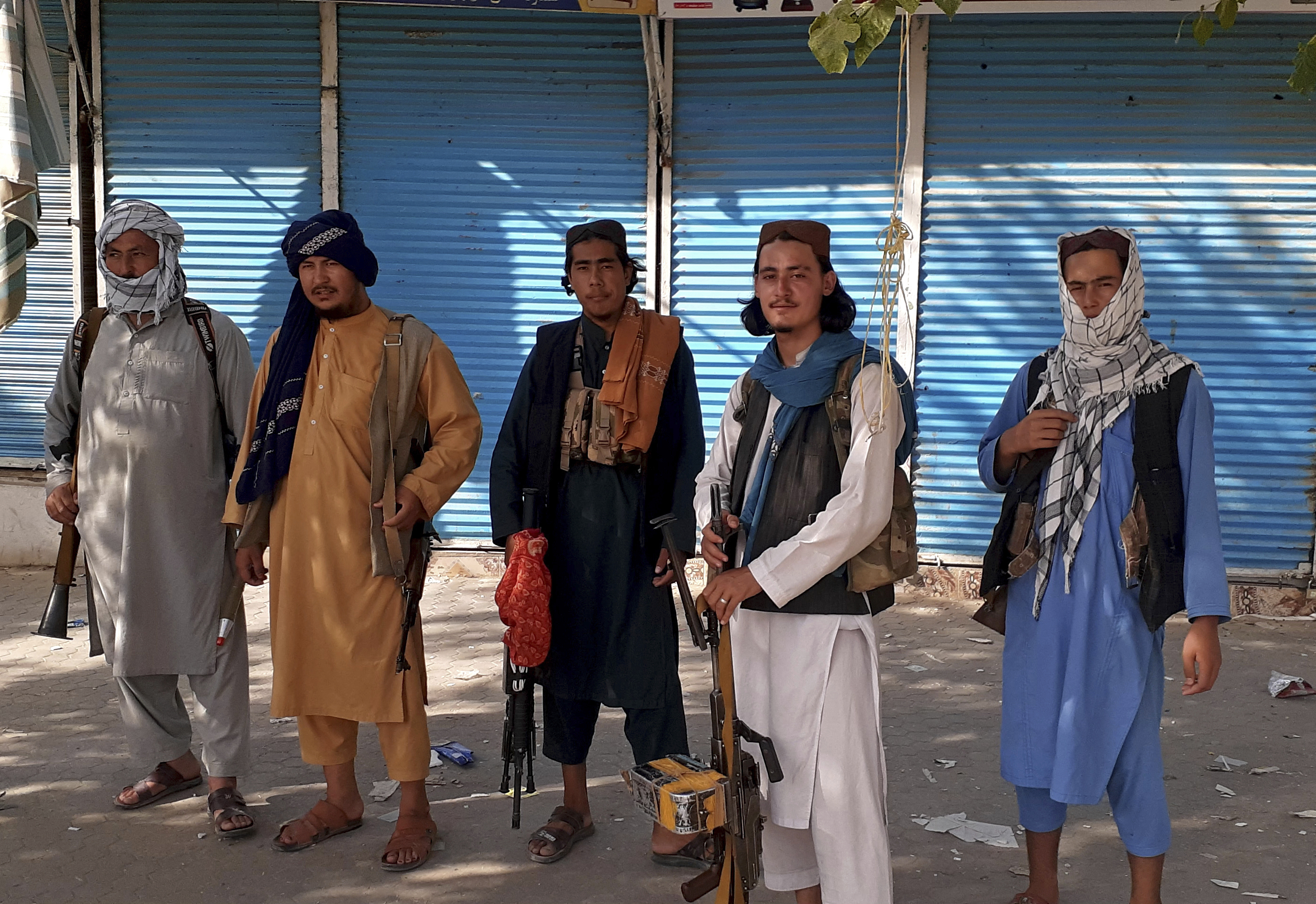Under Taliban rule, residents of Kunduz fear the future: 'People are scared'


A free daily email with the biggest news stories of the day – and the best features from TheWeek.com
You are now subscribed
Your newsletter sign-up was successful
The Taliban has proclaimed it won't lead by fear in Afghanistan, but residents of Kunduz — a city seized by the militant group just a week ago — say they are already under strict rule, with checkpoints on nearly every street corner, alcohol sales banned, and women who work for the government told to stay home.
Before the U.S. war in Afghanistan began in 2001, the Taliban ruled Afghanistan for five years, enforcing extreme sharia law. There were mass executions of civilians; women were prohibited from attending school, forced to wear burqas, and had to be accompanied by a male relative while in public; and photography, paintings, and most music and movies were banned. With the U.S. withdrawing, the Taliban has swept across Afghanistan, seizing major border crossings and cities. Now that its fighters are in Kabul and have seized the presidential palace, the Taliban is effectively in control of Afghanistan.
The Taliban captured Kunduz last Sunday, and what is happening there might give a glimpse into how the rest of the country will be ruled. The New York Times interviewed several residents by telephone, as well as Taliban commander Gul Mohammad Elias, the newly appointed mayor. By the time the Taliban seized Kunduz, after weeks of fighting, power lines were down, most people didn't have water, and trash and rubble littered the streets. Afraid to go to work, many civil servants remained at home.
The Week
Escape your echo chamber. Get the facts behind the news, plus analysis from multiple perspectives.

Sign up for The Week's Free Newsletters
From our morning news briefing to a weekly Good News Newsletter, get the best of The Week delivered directly to your inbox.
From our morning news briefing to a weekly Good News Newsletter, get the best of The Week delivered directly to your inbox.
Elias told the Times he called workers into his office and asked them to return to their jobs, saying "that our jihad is not with the municipality, our jihad is against the occupiers and those who defend the occupiers." Some listened, but those who didn't were visited by Taliban fighters, who demanded they go back to work. Elias quickly called another meeting of male government workers, one resident told the Times, this time with armed Taliban fighters in the room.
At the regional hospital, a note states that if employees don't start showing up, the Taliban will punish them. One health care worker said Taliban fighters are tracking down his colleagues who fled Kunduz and ordering them to return. Female hospital employees, afraid of getting in trouble, are wearing burqas. "People are scared, they are not happy, and if anyone says that people are happy, he is lying," one civil servant told the Times. "Everyone is wondering, what will happen to our future?"
A free daily email with the biggest news stories of the day – and the best features from TheWeek.com
Catherine Garcia has worked as a senior writer at The Week since 2014. Her writing and reporting have appeared in Entertainment Weekly, The New York Times, Wirecutter, NBC News and "The Book of Jezebel," among others. She's a graduate of the University of Redlands and the Columbia University Graduate School of Journalism.
-
 How to Get to Heaven from Belfast: a ‘highly entertaining ride’
How to Get to Heaven from Belfast: a ‘highly entertaining ride’The Week Recommends Mystery-comedy from the creator of Derry Girls should be ‘your new binge-watch’
-
 The 8 best TV shows of the 1960s
The 8 best TV shows of the 1960sThe standout shows of this decade take viewers from outer space to the Wild West
-
 Microdramas are booming
Microdramas are boomingUnder the radar Scroll to watch a whole movie
-
 Rubio boosts Orbán ahead of Hungary election
Rubio boosts Orbán ahead of Hungary electionSpeed Read Far-right nationalist Prime Minister Viktor Orbán is facing a tough re-election fight after many years in power
-
 Key Bangladesh election returns old guard to power
Key Bangladesh election returns old guard to powerSpeed Read The Bangladesh Nationalist Party claimed a decisive victory
-
 Epstein files topple law CEO, roil UK government
Epstein files topple law CEO, roil UK governmentSpeed Read Peter Mandelson, Britain’s former ambassador to the US, is caught up in the scandal
-
 Iran and US prepare to meet after skirmishes
Iran and US prepare to meet after skirmishesSpeed Read The incident comes amid heightened tensions in the Middle East
-
 EU and India clinch trade pact amid US tariff war
EU and India clinch trade pact amid US tariff warSpeed Read The agreement will slash tariffs on most goods over the next decade
-
 Israel retrieves final hostage’s body from Gaza
Israel retrieves final hostage’s body from GazaSpeed Read The 24-year-old police officer was killed during the initial Hamas attack
-
 China’s Xi targets top general in growing purge
China’s Xi targets top general in growing purgeSpeed Read Zhang Youxia is being investigated over ‘grave violations’ of the law
-
 Panama and Canada are negotiating over a crucial copper mine
Panama and Canada are negotiating over a crucial copper mineIn the Spotlight Panama is set to make a final decision on the mine this summer
